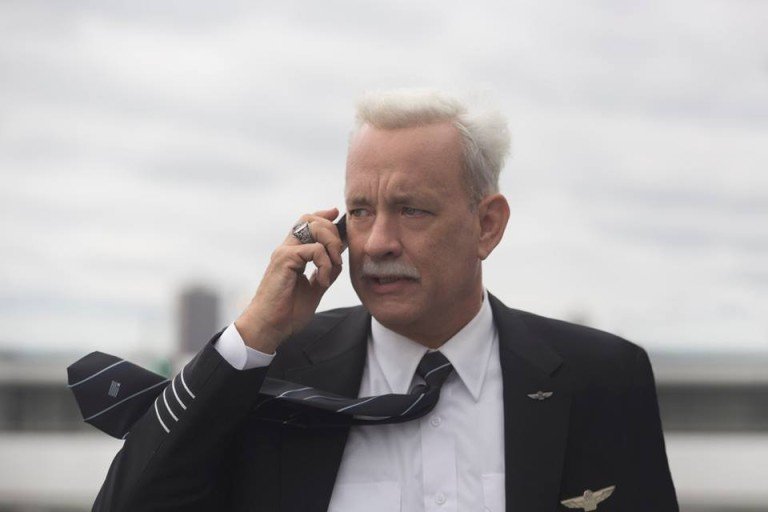Celine Song’s “Materialists” (2025) offers a classic Hollywood ending. It shows Lucy and John, two lovers, confessing their feelings for each other and getting engaged. The ending, much like the rest of the film, is deceptively simple. It lulls you with its comforting warmth as you see Lucy, John, or Harry find in each other what they cannot anywhere else.
To Lucy, they feel like home. They can be frank with each other without the fear of being judged. So, they can speak without any pretense. For a romantic comedy, that is hardly unconventional. We have seen plenty of films about women agonizing over making the right choice between a rich and a poor man.
In this film, the woman chooses a 30-something man struggling with his finances instead of a man with generational wealth. Yet, Song doesn’t portray it as just another happy ending — even if it looks and sounds like she does. Instead, she investigates the transactional nature of the modern dating scene. It’s where every person speaks about their potential better half as a commodity with customizable features. It’s also where a ‘bad date’ can be far more devastating for one gender. To understand it all better, let’s unpack its intricate plot.
Spoilers ahead
Materialists (2025) Plot Summary & Movie Synopsis:
“Materialists” is Celine Song’s sophomore directorial feature that examines the nature of modern romance through the life of a professional matchmaker. Song has previously written and directed “Past Lives,” which earned her two Oscar nods. With her new film, she continues exploring the nature of intimacy in the present-day romantic scenarios.
What happens in Materialists?
In “Materialists,” Lucy (Dakota Johnson) decides whether she wants to be with Harry (Pedro Pascal) or John (Chris Evans). Harry is a venture capitalist with generational wealth. John is a 37-year-old actor struggling to make ends meet. She is caught in choosing between money and love.
Well, that’s not all there is in Lucy’s life. She works for Adore, a matchmaking agency that helps people find their partners. Lucy doesn’t run the place, but it feels like she does. She knows exactly what her clients are looking for, and even when that’s not the case, she doesn’t lose hope. She keeps trying to help them find their soulmate. Even so, their discussions are not remotely dreamy or naive.
Whether men or women, Lucy’s clients often have rigid expectations of their potential better halves. They talk age like they’re looking for a lady for the night. They talk about salaries like they’re in an auction. Moreover, they rarely discuss emotions and focus more on transactions. So, almost everything sounds dehumanizing.
Still, Lucy listens to their expectations without judgment and notes them down to ensure their next date checks most of those boxes. She helps Sophie (Zoë Winters) the same way. However, Sophie hasn’t found her match yet. Even when she likes the next person, she is not always who they are looking for. It leaves her high and dry.
Eventually, Lucy sets up a date between Sophie and Mark. After the date, he calls Lucy to admit that the date went well and he wants to meet Sophie again. Yet, the truth is, while drunk, he assaulted Sophie. That puts Lucy at a crossroads in her professional and dating life. Her boss, Violet (Marin Ireland), tells her that it’s simply a part of their job. She, however, contemplates whether she is truly helping clients or not. Is checking boxes all there is to love? Lucy wonders as she navigates her relationship with John and Harry.
Why does Lucy leave Harry?
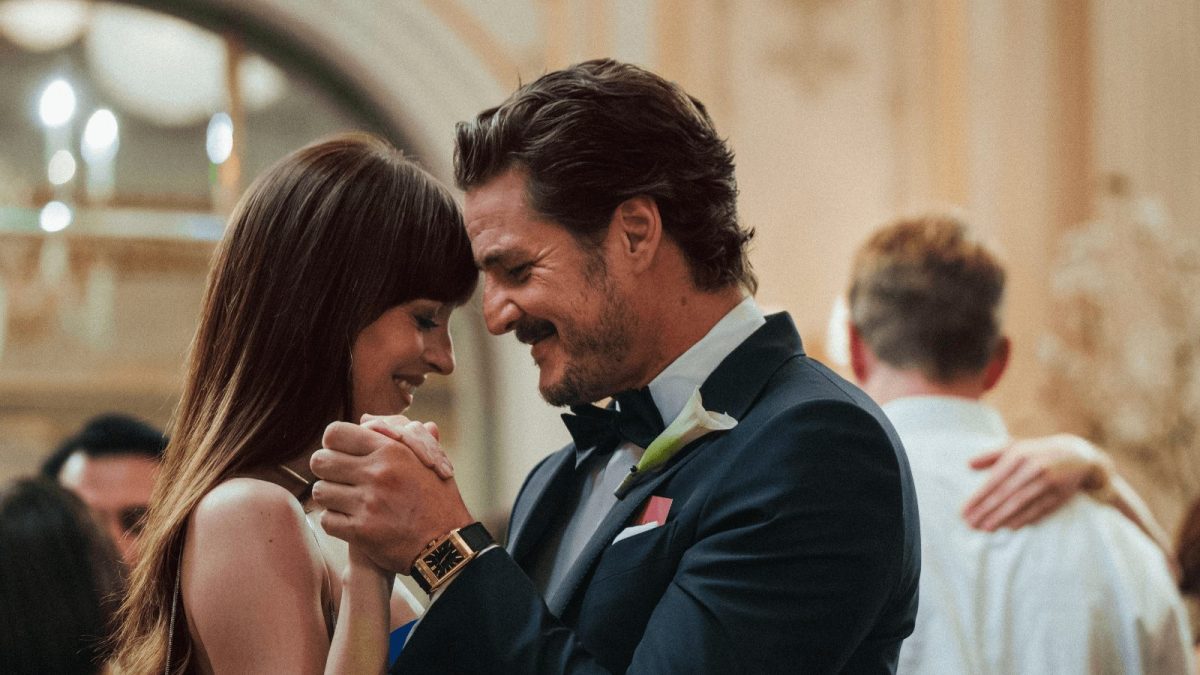
Lucy meets Harry at one of her clients’ weddings. Initially, she sees him as only a potential client. Why wouldn’t she? He comes from a wealthy family and works in private equity. So, he can offer his partner financial security for the rest of her life. In Lucy’s line of business, he is a ‘unicorn,’ ideal for their many clients.
Instead, Harry hopes to court her. She doesn’t accept his offer right away, but he persists. So, finally, she goes on a date with him. He reveals that he considers her to be his ideal match. They discuss their financial situation and bear a mutual respect. Yet, it feels like just a business transaction. They don’t have that romantic spark.
Harry can take Lucy to any place she wants, whenever she wants, and fulfill all her material desires. Yet, the fact remains: she doesn’t love him, and neither does he love her. That’s why she decides to leave him. It’s not because he went through a horrifying surgery to make himself taller. It’s that they may never feel loved by each other despite all their investments. She reaches this conclusion after she learns about Sophie’s traumatic date, even if Mark ticked most of her boxes of expectations. It also brings her back to think of John, with whom she felt that spark.
Why does Lucy get back with John?
Lucy meets her ex-boyfriend, John, at the wedding ceremony, where she bumps into Harry. They reminisce about the good parts of their relationship. It leaves John longing to be with her, but his heart breaks as he sees her slow-dancing with Harry. Later, he invites her and Harry to watch him perform at a quaint, local theater.
After the show, they go to a bar. It all happens just after she hears about Sophie’s date. Harry realizes that she is feeling low. He tries to cheer her up by saying that “dating is not that serious,” implying her job doesn’t matter in the grand scheme of things. However, he says this sarcastically. It might be because he was jealous of Harry, whom Lucy might think of marrying for his riches, instead of him.
Yet, no matter what, it sounds insensitive. After all, John kept pursuing his acting career despite seeing no growth in his early years, while Sophie left her acting ambitions to enter a lucrative field. She behaved responsibly, while he didn’t. It’s not just that he hasn’t made it in the industry by 37, but he doesn’t seem to have a sense of responsibility either, even if he’s someone who wants to be with her.
This was partially why they broke up. He couldn’t make her feel valued with what little he had. He also couldn’t control his emotions too well and was frugal to a fault. The film doesn’t show us much about their past, but it alludes that they broke up because of his meager income and overall lack of ambition.
Materialists (2025) Movie Review
It sounds materialistic on Lucy’s part, but we can hardly judge her either. She has huge debts, likely because early in her life, she wanted to pursue acting. So, she sought financial security. Still, years later, she decides to get back with John. She shows up at his doorstep as soon as she leaves Harry. Agreed that it might be only because she had sublet her apartment for the time she was supposed to be on a trip to Iceland with Harry, and thus, had no other place to crash at. Yet, she chooses John over anyone else, because she feels connected to him in a way she doesn’t with Harry.
Materialists (2025) Movie Ending Explained:
Does Lucy make a bad financial decision in the end?
Toward the end, Lucy and John gatecrash a wedding. They slow-dance together and share a kiss. However, what could have been a sweet moment of connection turns into a messy realization. He wonders if this means they are getting back together. If not, what’s the point? He will still be just as heartbroken as he was before.
Perhaps this time, it will hurt even more knowing whatever sacred they felt in those moments while dancing together. Yet, despite knowing her material interests, he can’t help but fall for her, over and over. He mentions this. She says that some things are not worth having just because they are unattainable. She tries to push him away, likely because she thinks that’s best for both of them.
Lucy may never change, and neither may John. He may never afford to be with her, and she may always be as cold and judgmental as she is now. While they try to figure out what it means for their future, she receives a call from Sophie. She reveals that Mark has shown up outside her house and is threatening her. Lucy drives there and helps her file a restraining order against Mark. John waits for Lucy. As soon as she walks out, he proposes to her. He agrees to work on himself if it means he can be with her. She admits that he makes her feel capable of love. So, she accepts his offer and kisses him.
The next moment, we see them in a park. Violet offers her a promotion over the call with a blank check, but still, Lucy contemplates quitting. Then, John shows up and they get engaged. Within moments, the credits start rolling. We see a shot from a clerk’s office, filled with couples hoping to receive their marriage certificates. John and Lucy also show up there to collect theirs.
As it happens, Michelle Zauner’s (Japanese Breakfast) ‘My Baby (Got Nothing At All)’ starts playing. It makes you think that this is a happy ending for the couple, as Lucy seemingly makes a bad financial decision. However, the final shot may have flipped that notion on its head.
Do Lucy and John have a happy ending?
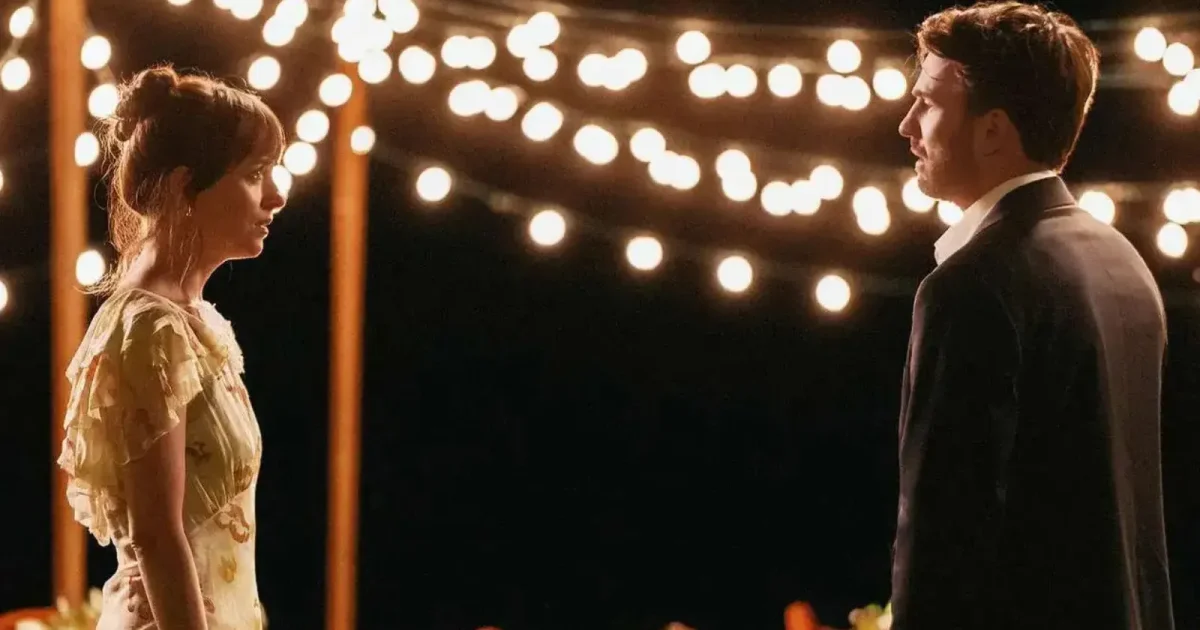
On the surface, the climax of “Materialists” shows Lucy deciding to get back into a relationship with John. However, the film doesn’t necessarily claim that they have a happy ending. The ending and the overall film are about interrogating the nature of love and relationships. That’s also why it shows a primordial couple getting engaged in a cave.
Through those brief scenes, the film wants us to ask ourselves: What do we look for in a relationship? Is it love or material gains? How did those ancient couples figure out what they meant to each other? What did they have to offer to each other apart from love and companionship?
Through these queries, the film sheds light on the complexities that dictate modern relationships. The songs aptly reflect what Lucy and John feel. Baby Rose’s ‘That’s all’ and ‘I’ll be your mirror’ reflect John’s innate feelings. All he has to offer is his love. He can help her not let her darkness consume her and be by her side. However, the film understands that it’s not the only thing a woman wants from their partner. So, her ending with John might only be one of her beginnings. After all, in Lucy’s case, her ‘Baby has got nothing at all,’ but his love. So, their marriage may not last forever.
That’s also why we see so many happy couples in the office. Some of them might make it work while others may not. Yet, the ending isn’t outright cynical. It’s bittersweet. It’s also unlike usual romances that often use marriage as a conclusion. “Materialists” hints that it’s only a beginning. After all, Lucy’s material expectations are rooted in having a stable life. If John stays faithful to his words, their relationship may last forever.
Materialists (2025) Movie Themes Analysed:
Modern Relationships, Perception, and Transactionality
In “Materialists,” Dakota Johnson’s character says something along these lines: Perception of a happy life is all you need to have a happy life. It sounds simple and a bit too practical at the moment. However, it is a key to much of the film’s discourse about the nature of modern relationships, in particular. It ties into the film’s discourse about making judgments based on one’s attractiveness, and the lengths to which people go to deem something suitable.
The film further reveals how marriage is an economic proposition to women, something that Louisa May Alcott also said back in the 19th century. What makes it multifaceted in today’s world are the increased possibilities at hand. Despite all the progress made otherwise, financial stability is a primary goal for most match-seekers.
It has become even more prominent at a time when singlehood doesn’t seem unorthodox but impractical. People are getting into relationships to share the economic burden. It leads to transactionality in even the sacred bonds of love. Celine Song unpacks it with her script, ripe with subtext that resonates. It also shows women left to feel high and dry, even while expecting the bare minimum from their partners. Yet, even if it seemingly shows Lucy settling for her broke ex-boyfriend, it doesn’t offer a conclusion. Instead, it leads to a discourse about how we seek love and companionship.



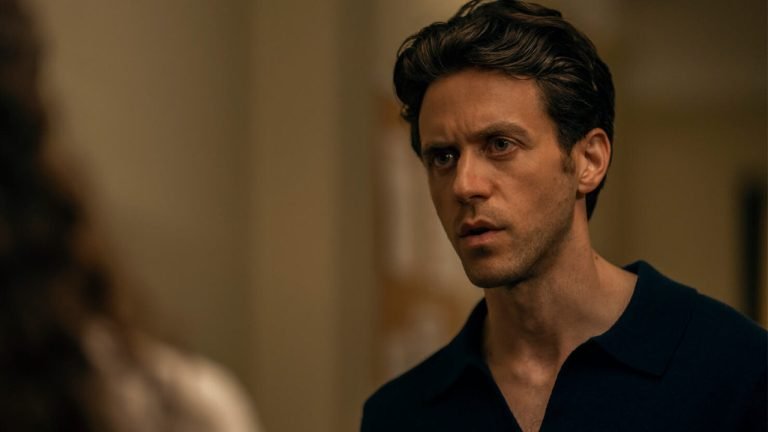
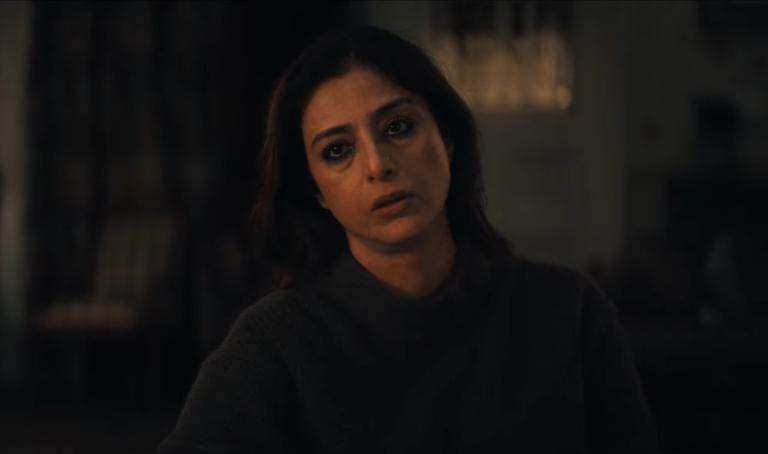
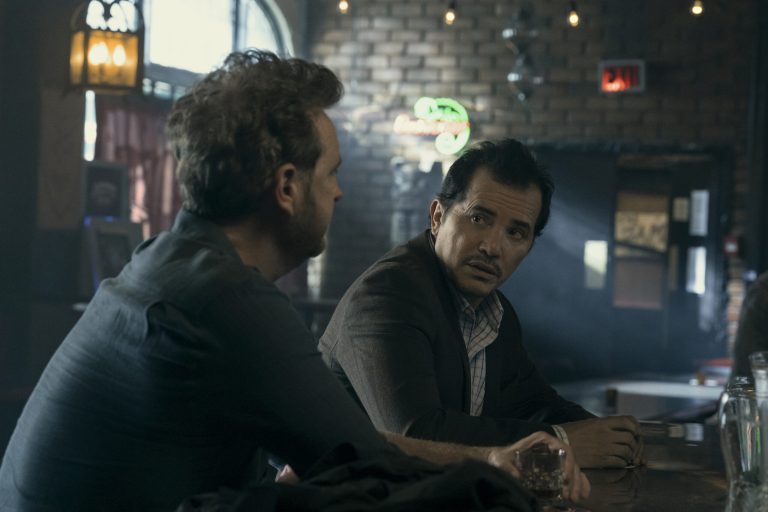
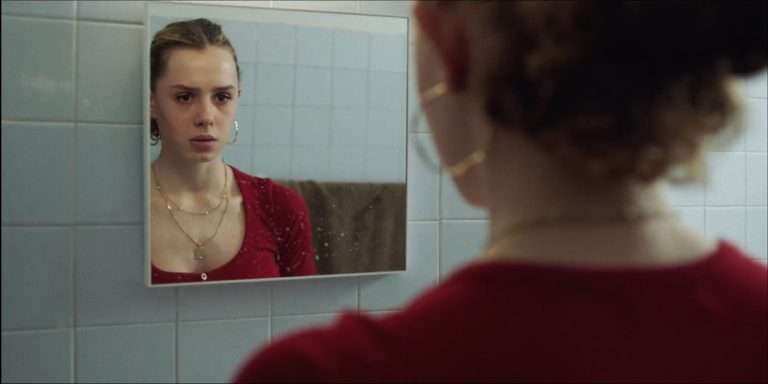
![My Name is Andrea [2022]: ‘Tribeca’ Review- An Eye-Opening Take on How Swiftly Castles of Glass can Shatter](https://79468c92.delivery.rocketcdn.me/wp-content/uploads/2022/06/My-Name-is-Andrea-Tribeca-Review-1-768x418.png)
